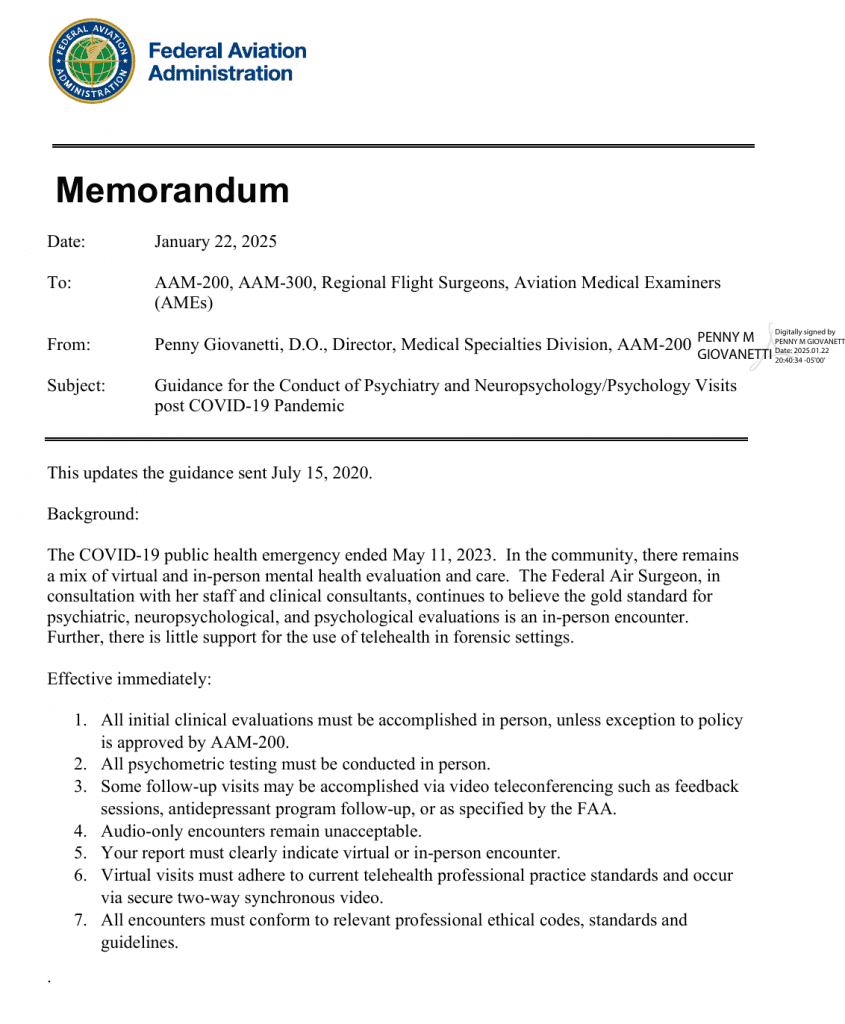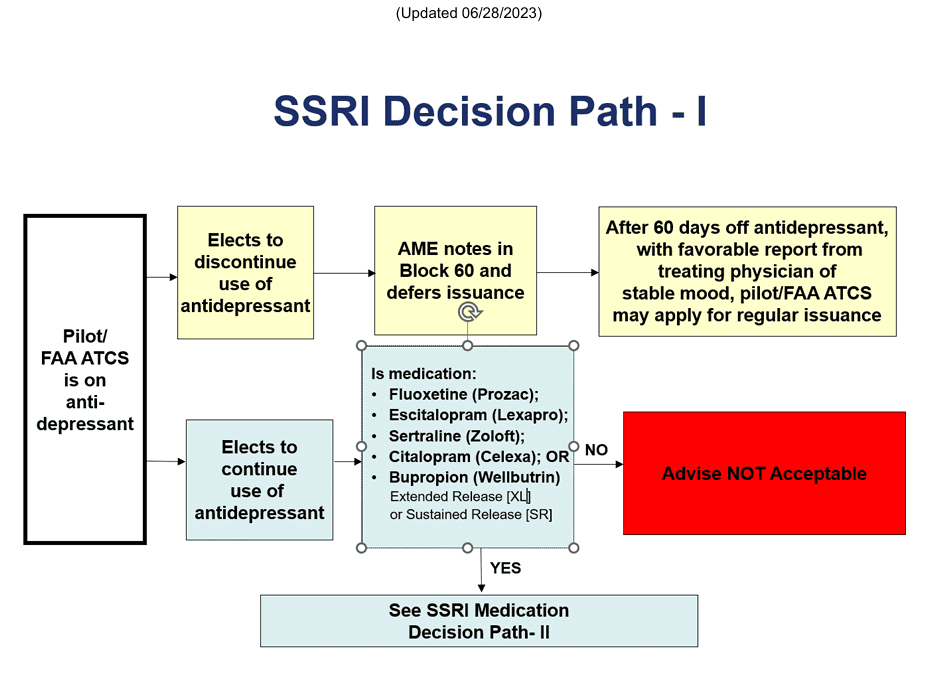
Jan 22, 2025 – Federal Air Surgeon Bans Virtual Assessments
Limited Application for Return Visits Still Allowed

In July 2020, the FAA under the authority of FAS Dr. Michael Berry allowed virtual visits during the height of the pandemic. As soon as April 2021, psychiatrists were advised that in-office, in-person evaluations remained the gold standard for assessment of first-time clients.
Dr. Northrup’s January 22, 2025 memorandum places into writing the verbal guidance first given in 2021. You can download and read the memo if you want more information.
Can Pilots Take Antidepressants?
IN APRIL 2024, THE FAA ADDED THREE NEW ANTIDEPRESSANTS TO THE PATHWAY: DESVENLAFAXINE, DULOXETINE, AND VENLAFAXINE. PILOTS HAVE EIGHT APPROVED MEDICATIONS NOW.
Can pilots take antidepressants? A common reason for an aviation psychiatric evaluation is a pilot who takes, or who has taken, an antidepressant medication.
In 2010, the FAA published a pathway to consider Special Issuance Authorization medical certificates for a pilot who takes an antidepressant.
The FAA’s Antidepressant Decision Path I is where we start, and you can click the picture to go the FAA’s website and see a bigger image.
A few key points:
- The Antidepressant pathway allows consideration for pilots who take one of four SSRIS: fluoxetine (Prozac), citalopram (Celexa), escitalopram (Lexapro), or sertraline (Zoloft). As of 2023, a pilot can also be approved taking sustained-release or extended-release bupropion (Wellbutrin). As of 2024, three more antidepressants were added: duloxetine (Cymbalta), venlafaxine (Effexor), and desvenlafaxine (Pristiq).
- Other antidepressants do not have a Special Issuance pathway.
- It does not matter if the antidepressant was taken for a medical problem. For example, an antidepressants can be used to treat various gastrointestinal problems, premenstrual dysphoria, chronic headaches, and chronic pain. If you take one of these four medications, for any reason at all, you are on the pathway.

The pathways have not been formally renamed yet. The SSRI pathway now should be interpreted to include eight medications, four of which are not SSRIs.
The best pilot is a healthy pilot, and the pilot’s skill and decision making is the aircraft’s most critical piece of safety equipment.
The decision tree for antidepressant cases has too many branches to explore each outcome. But some of the key decision points are:
- What is/was the diagnosis for the antidepressant?
- What kind of symptoms did the pilot have before the antidepressant?
- How effective is/was the medication?
- If the pilot has already quit the medicine, how long did the pilot take the therapy?
- If the pilot has already quit the medicine, how long ago did the prescription lapse?
- Did the antidepressant cause any aeromedically significant side effects?
In a nutshell, the decision on if a pilot takes a antidepressant, or stops an antidepressant, is all about the PROGNOSIS. A prognosis is a prediction, based on facts, epidemiology, and medical judgment. A prognosis is not a testable fact but a prediction of future medical outcomes.

So, should I stop my medicine? That will make it easier, right?
NO.
So, then I have to keep taking the medicine, no matter what?
NO.
My strategic advice
FIRST, I advise that you secure a HIMS AME.
Do not asume that stopping an antidepressant improves your chances to get a medical certificate. With some prognoses, you probably cannot get a medical certificate unless you take an antidepresant..
If you stop an antidepressant and need to restart it, the minimum waiting period is six months on a stable dose and with no or only a few mild symptoms.
HIMS AME ANTIDEPRESSANT CHECKLIST
The FAA publishes an antidepressant checklist for a pilot taking an antidepressant and applying for a Special issuance Authorization medical certificate. The form is intended for your HIMS AME to submit with your packet. Even if not intended for the pilot, reviewing the antidepressant checklist helps you understand what needs to go to the FAA for your packet.
